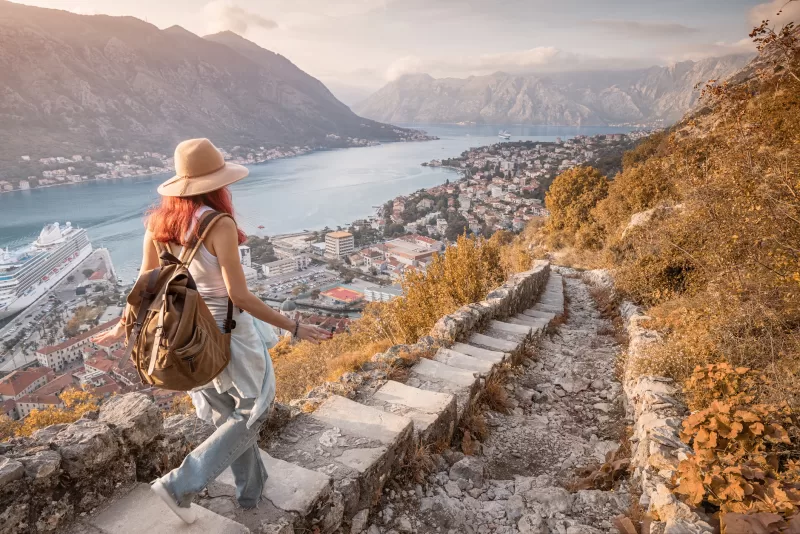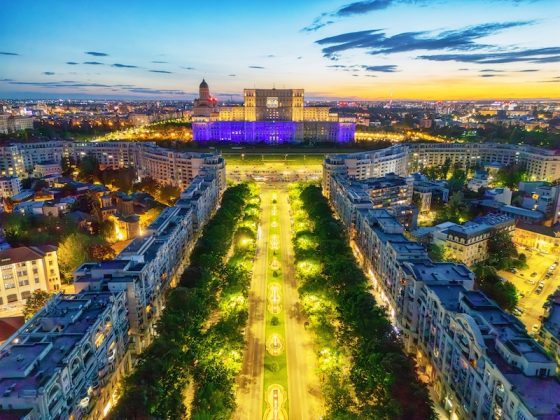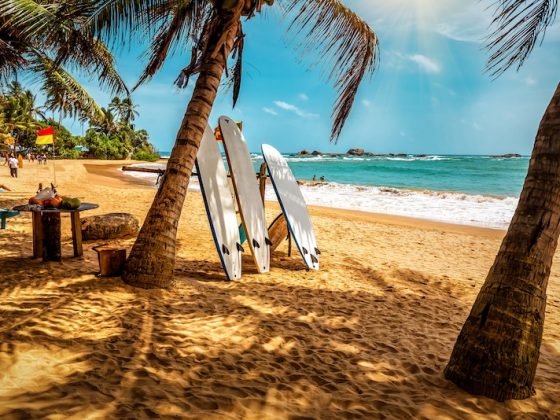If you’re an American thinking about living abroad, that idea usually blooms from a simple feeling: life could feel different somewhere else. Maybe mornings could begin with sea air instead of commuter traffic. Maybe a weekly budget could leave room for dinners out, weekend trips and a little breathing space. Maybe the language you hear on the street sparks curiosity instead of stress.
But relocating abroad isn’t about chasing a postcard fantasy. It is about choosing a place where everyday life feels good any day of the week, where healthcare is accessible, groceries are reasonably priced, and evening light catches on buildings that remind you the world is older and bigger than the routines you left behind. It is about keeping the comforts that matter and trading the ones that don’t.
Remote work opened doors once bolted shut. Residency paths are clearer. Global communities are more connected. There has never been a better moment for U.S. citizens to build a life in a different part of the world. So, it makes sense you want to know what are the best cities for American expats before making a decision.
This guide focuses on five cities where Americans are settling successfully right now. You will find more than cost breakdowns: each section explores what the days feel like, where the trade-offs hide, and what kind of person thrives there. Change your location, change your rhythm. Let’s explore what that could look like for you.
What Makes a City Ideal for American Expats
Before packing boxes or comparing rents, most Americans searching for a new home abroad are really searching for a different version of their life. They want days that feel calm instead of rushed, cities that feel safe instead of stressful, and budgets that allow them to enjoy more than the bare minimum. They want to be somewhere new but still feel rooted.
Finding that balance takes more than a pretty skyline. A city has to support the fundamentals. Things like affordable housing, access to healthcare, a community that welcomes newcomers, and straightforward legal pathways so residency doesn’t feel like a gamble. It should offer enough familiarity to make daily life smooth, and enough cultural richness to remind you why you moved in the first place.
Americans thrive abroad when a destination offers freedom: financial freedom, freedom of movement, and the freedom to build routines that make sense again. The best cities strike that sweet spot where comfort and curiosity live side by side.
With that in mind, here are the practical cornerstones that determine how well a city fits U.S. expats; the factors that turn an exciting move into a sustainable, satisfying life:
Cost of living and housing
For most Americans imagining a new life abroad, money sets the foundation. A city where the dollar stretches further means more freedom in how you spend your days: dinners out instead of microwave meals, weekend getaways instead of weekend budget-stress, apartments that feel like homes rather than storage units.
Take Valencia, where a single person’s monthly living costs (excluding rent and utilities) hover around €657. In Lisbon, a similar estimate comes in at roughly €850. In Panama City, a modest lifestyle including rent may land between US$1,800 and $2,200 per month. These figures paint a picture of what is possible when expenses shift from “barely manageable” to “comfortably sustainable.”
Still, lower costs do not erase the need for planning. Housing markets fluctuate. Import taxes can make everyday goods pricier than expected. Choosing the right neighborhood matters as much as choosing the right city.

Language, community and culture
Starting over feels easier when you can greet a cashier without fear of misunderstanding, order lunch with confidence and meet friends who understand where you came from. Established expat circles and English-friendly environments remove friction from daily life.
But it’s culture that gives a place its color. A city should reward curiosity: food that comes with backstories, neighborhoods where local life floods the streets, history you can touch just by looking up. A supportive expat network is valuable, but if it becomes your entire world, you’ve simply relocated your bubble. The sweet spot is a place where American expats are welcome, but not the main show.
Visa, tax and residency considerations
A city can look perfect on Instagram, but if you cannot stay legally or manage your finances without headaches, the glow fades quickly.
Before committing, every U.S. citizen should ask:
- How easy is long-term residency?
- Are there income or employment requirements?
- What does owning property look like?
- Will I pay taxes twice if I’m not careful?
Some countries offer stable, well-documented residency paths; others require a maze of paperwork and patience. The U.S. tax system continues even when you live abroad, so expats must plan carefully to avoid unwelcome surprises.
Quality of life: healthcare, safety, transport
The best choices shine in the long haul. Safe streets, accessible healthcare, good public transit and simple day-to-day errands make the unfamiliar feel comforting.
It’s not just grand experiences (sunsets, beaches, bucket-list sights) but the often overlooked routines that determine how well life works: picking up prescriptions, commuting to a coworking space, calling a doctor. Quality-of-life ratings from global expat surveys repeatedly show that wellness and convenience outrank novelty once daily life fully settles in.
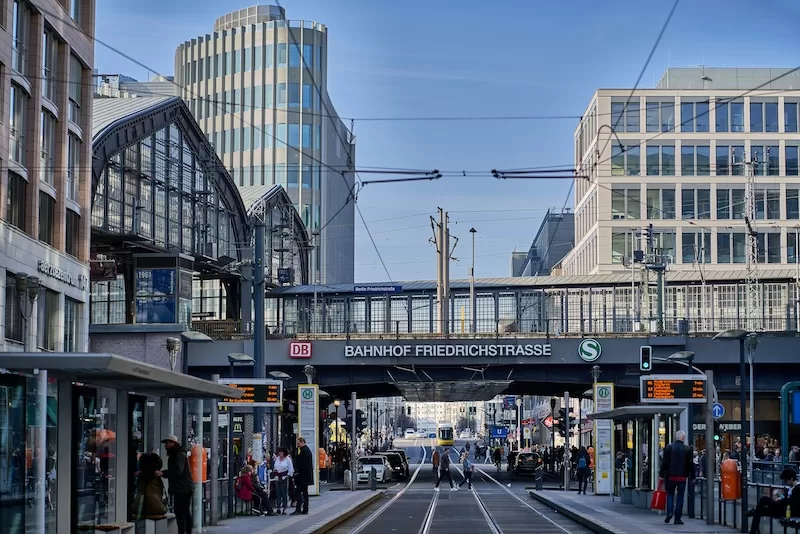
Additional factors Americans should weigh
There are also practical considerations that often surface only after arrival:
• Time-zone compatibility if you work with U.S. teams
• Familiar consumer conveniences like pharmacies and grocery options you can trust
• Lifestyle flexibility including access to nature, sports, and ways to build community beyond screens
The right city isn’t just exciting on day one. It’s emotionally and logistically supportive on day 1,001.
Top Five Cities for American Expats
Below are five cities/regions that repeatedly show up in expat guides, with specific strengths for American citizens. They each offer something slightly different, so you can match your priorities.
Valencia, Spain
Valencia makes everyday life feel special. Morning light spills into the streets early, warming café terraces where cortados arrive before the day has a chance to rush. The scent of orange blossoms drifts through the plazas in spring, and even the busiest weekday can end with a walk to the sea as the evening turns the Mediterranean silver. You can cross the city by bike without feeling like you’re sprinting through traffic, and each neighborhood is its own little universe: Ruzafa with its creative pulse and restaurants, El Carmen with Gothic facades and narrow alleyways, El Cabanyal where fishermen’s houses sit painted in blues and yellows that fade beautifully in the sun. Life encourages you to stay outside: picnics in the Turia Gardens, market shopping at Mercado Central, where vendors know the seasons better than the calendars, late dinners that stretch long past sunset because no one seems in a hurry to leave. It is lively without feeling chaotic, social without demanding constant performance.
Expats rank Valencia highly, not because it dazzles with spectacle, but because it feels livable: culturally rich, friendly, and unexpectedly affordable for a European coastal city. It is a place where comfort does not have to cost extravagance, and where the simple rhythms of a good life become the highlight rather than the filler.
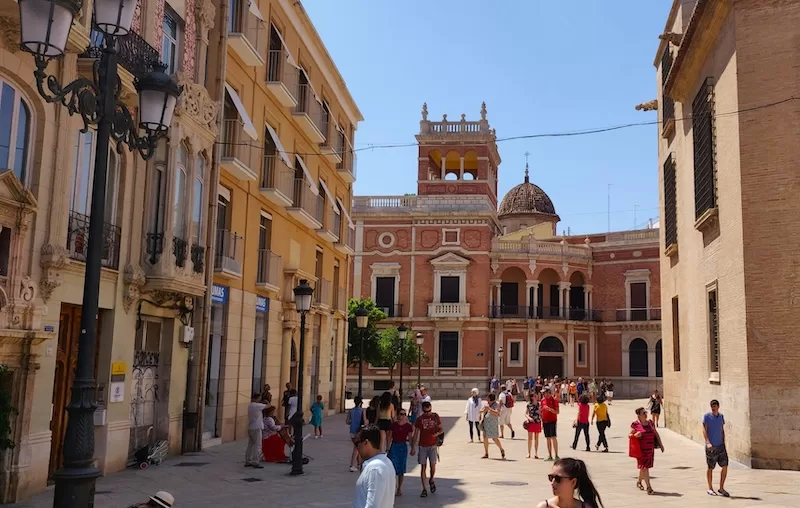
Why it appeals:
• A single person’s estimated living costs excluding rent sit around €657/month in recent reports, making it one of Spain’s most affordable major cities
• The Turia Gardens (a nine-kilometer greenway through the city) bring nature into the daily routine
• A coastline within cycling distance enables weekday swims and breezy weekend escapes
• A calendar full of local celebrations, from Las Fallas to late-night summer festivals, keeps community spirit front-and-center
• A slower pace than Madrid or Barcelona means less pressure and more life lived outside work
Best for:
Remote workers who want sunshine with structure, retirees who appreciate walkable neighborhoods and healthcare access, and anyone seeking a Mediterranean lifestyle that feels pleasantly everyday instead of special-occasion expensive
Challenges to consider:
• Rental demand has increased, especially near the beach and historic center, so expect competition for desirable homes
• Spanish becomes essential for handling everyday tasks outside tourist corridors
• Job prospects for American expats are stronger if income is remote or if you work in international sectors with Spanish fluency
Valencia gives American expats the gift of space (both financial and emotional) to shape a fulfilling new routine under the Mediterranean sun.
Local Tip: for flatter, easy-to-navigate streets close to cafés and culture, many expats choose Extramurs or Benimaclet. Both provide community without sacrificing convenience to the city center.
Lisbon, Portugal
Lisbon makes the ordinary feel like a scene worth remembering. Laundry hangs from pastel balconies and shifts in the Atlantic breeze. Yellow trams climb hills that turn legs into stronger limbs and strangers into neighbours. Tiles shimmer on building façades in patterns that are handmade, not mass produced. You feel the history under your feet, but you do not feel pressed by it. Restaurants fill the streets. Fado music floats from small taverns in Alfama. The smell of grilled sardines tells you summer has arrived even before the calendar does. There is a sense of leisure in how locals move, as if life is meant to be enjoyed rather than rushed through.
American expats often speak about Lisbon in terms of possibility. It offers European living without losing warmth and a coastal lifestyle without the price tag of more famous capitals. You can spend the morning working in a café with strong espresso and the afternoon standing barefoot on sand.
Lisbon’s greatest strength may be how easily it teaches you to slow down. People linger a little longer over meals. Greetings happen face to face instead of through screens. It feels like a place where life expands rather than contracts.

Why it appeals:
• A single person’s monthly living costs, excluding rent and utilities, sit around €850, making it accessible relative to other Western European capitals
• English is widely used, especially in hospitality, healthcare, tech, and expat-popular neighborhoods
• A coastline just minutes away allows surfing before work and seafood lunches that taste like the ocean still remembers them
• Digital nomad hubs, creative communities, and thriving international schools create a welcoming environment for long-term settling
• Lisbon Airport connects directly to several major U.S. cities, keeping home close enough for comfort
Best for:
Remote workers wanting a European base with global access, couples who value culture and climate in equal measure, and families seeking a friendly city where kids grow up near the sea
Challenges to consider:
• Rent has risen quickly in recent years, particularly in central and coastal neighborhoods
• Tourist peak seasons bring busier streets and more competition for services
• Portuguese language skills become important for deeper friendships and local integration
• The city’s steep hills and cobblestone sidewalks can be demanding for anyone with mobility concerns or who prefers flatter, easier walking routes.
Local tip: Neighborhoods such as Campo de Ourique, Estrela, and Parque das Nações offer flatter terrain and a calmer pace while still keeping you close to the heart of Lisbon.
Read More Like This: Living in Portugal as an American: What to Know Before You Move
Singapore
In Singapore, skyscrapers rise above tropical gardens where orchids bloom even in the height of urban activity. Streets stay spotless without feeling sterile. Trains arrive exactly when the signs say they will, and it becomes normal to trust that everything just works. At lunch, crowds gather at hawker centers where a few dollars buy dishes that could win culinary awards. Chili crab, satay skewers, laksa steaming from the bowl. Food here is a love language and a democratic one too.
The power of the city is in the balance it holds. It is modern and ambitious yet surrounded by nature. Apartment balconies overlook rainforests and coastlines. Weekend escapes can be as simple as hopping a ferry to a nearby island. Even the airport is a destination in itself, filled with gardens and waterfalls rather than queues and frustration.
American expats often describe Singapore as reassuring. Safety is a given, infrastructure is efficient, and everyday life feels smooth, even luxurious, when the small stressors fall away. Yet the city also invites curiosity. Festivals that reflect Chinese, Malay, Indian and Western influences fill the calendar. New neighborhoods reveal new flavors and traditions. It is a place where the world feels both close and connected.
For those who want opportunity and adventure wrapped in reliability, Singapore offers a version of life that feels elevated without feeling complicated.
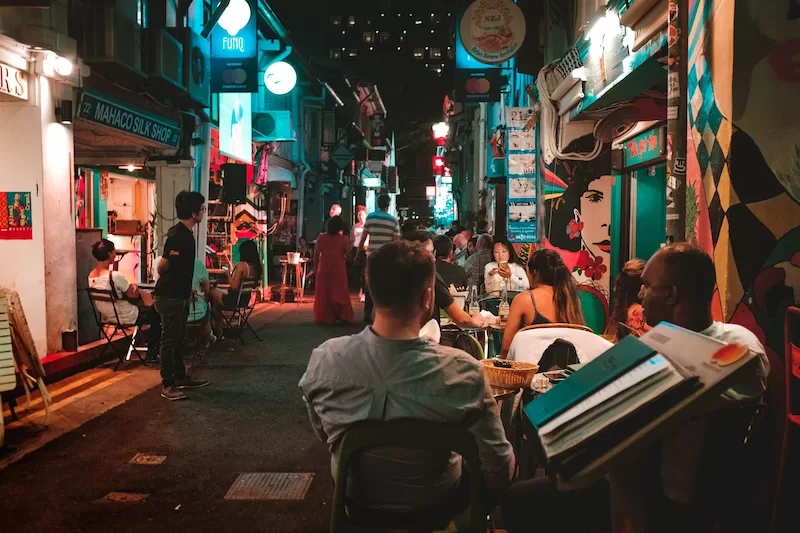
Why it appeals:
• A global finance and tech hub with abundant career opportunities
• One of the safest cities in the world with incredibly reliable public transport
• English is a primary working language, reducing arrival friction for U.S. expats
• Access to beaches, Southeast Asian travel, and diverse cultural experiences expands weekend possibilities
• Education and healthcare standards are among the best in Asia, easing long-term family planning
Best for:
Professionals in high-skill industries, families prioritizing education and safety, and Americans who love modern city life with seamless international connectivity
Challenges to consider:
• High cost of living, especially for housing and childcare
• Rules and regulations may feel stricter compared with the U.S.
• Physical distance from home may require adjustment for travel and time zones
Singapore is an investment, but one that pays back through security, convenience, and remarkable day-to-day quality.
Local Tip: to keep housing and childcare more affordable, expats often look slightly outside prime districts. Tiong Bahru, East Coast, and Punggol balance community life with good transit links.
Panama City, Panama
Panama City feels familiar and completely new at the same time. Its skyline glints with glass towers that could belong in Miami or Houston, but step outside the business districts and the atmosphere quickly shifts. The Pacific breeze carries the sound of Spanish conversation and the scent of ocean air. Fishermen return with the morning catch while cafés open for leisurely breakfasts. Just across the bay, ships line up to enter the Panama Canal, a reminder that this city sits at one of the most important crossroads in the world. Days encourage balance. It is a global city that offers modern comforts (reliable utilities, high-speed internet, air-conditioned everything) with the tropics always close. A quick drive brings you to rainforests alive with bird calls or beaches where turquoise water erases stress on contact. Even within the city, the Cinta Costera promenade invites residents to end the day with a coastal walk bathed in warm evening light.
American expats often describe Panama City as surprisingly easy to adapt to. The U.S. dollar is widely used, which removes a major hurdle from the adjustment period. English appears often in business and tourism. Healthcare is high-quality and far more affordable than what many Americans are used to paying. And the flight home to visit family is measured in hours, not days.
Panama City gives the sense that you can upgrade your lifestyle without uprooting your identity. Palm trees and comfort can coexist. Adventure does not require sacrificing stability. For many, that balance is exactly what a fresh chapter abroad should feel like.
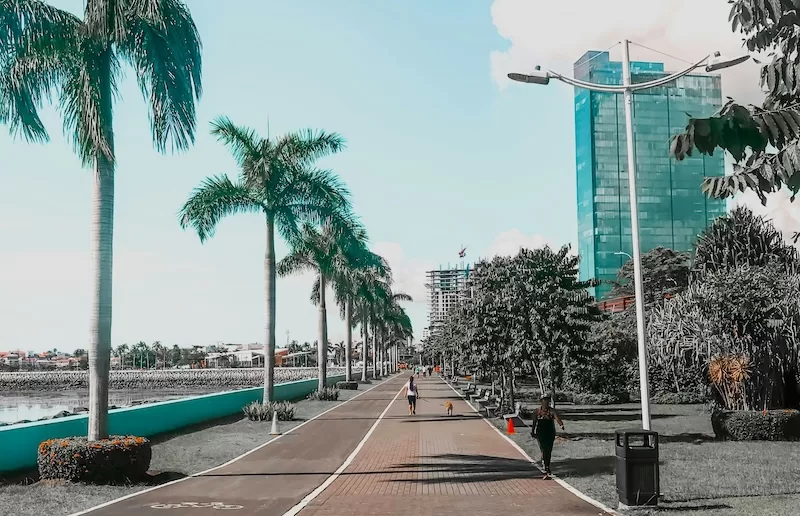
Why it appeals:
• A single person’s monthly costs, excluding rent, average about US$820, while a family of four may spend around US$2,890
• In desirable central districts of Panama City, 1-bed or modest 2-bed apartments often start around US$ 1,100–1,500/month, which remains attractive compared with many U.S. cities
• The U.S. dollar circulates widely, simplifying finances for newly arrived expats
• Residency programs designed with foreigners in mind help make long-term relocation attainable
• Private healthcare tends to be high quality and significantly more affordable than in the United States
Best for:
Retirees seeking comfort and convenience, remote workers who want ocean views without coastal price shock, and Americans who appreciate quick flights back to family
Challenges to consider:
• Neighborhood selection matters greatly for safety and convenience
• Tropical humidity means adjusting daily routines to the weather
• Limited local job opportunities for foreigners unless working remotely or in specialized sectors
Panama City offers the possibility of a vibrant international life with less financial stress, palm trees included.
Local Tip: neighbourhoods like El Cangrejo, Punta Paitilla and San Francisco offer strong walkability, good grocery access and reliable safety records. Visit at night and during rush hour to feel the true vibe.
Read More Like This: Is Panama Right for You? A Guide to Expat Life, Costs and Everyday Comforts
Berlin or Munich, Germany
Life in Germany feels grounded by design. Systems function. Days have structure. Sundays stay quiet so people can truly rest. When American expats talk about why they stay, they often point to the deep sense of stability here: knowing healthcare is accessible, knowing the train will arrive when it’s supposed to, knowing their daily stress comes from choices, not chaos.
Berlin and Munich offer two distinct versions of German living. Berlin hums with creative energy. Street art splashes across entire buildings. Cafés double as coworking spaces. History is woven into every corner: memorials, museums, and repurposed factories remind you of the city’s past while tech start-ups shape its future. Nights spill late into multi-cultural neighborhoods where Turkish bakeries sit beside vegan brunch spots and indie cinemas.
Munich, meanwhile, leans polished and green. Here, beer gardens invite long conversations under chestnut trees. The Alps crest the horizon, calling hikers and skiers into weekend adventures. Families ride bicycles along pristine riverside paths. Museums and classical music venues speak to a different kind of cultural richness, one that feels elegant and deeply rooted.
Both cities support American expats with strong transit, universal healthcare access and the kind of safety that lets you relax in public spaces. English is commonly spoken among younger residents and in many workplaces. And thanks to Germany’s location, Paris, Prague, Vienna or Copenhagen are often just a comfortable train ride away, turning Europe into a neighborhood.
What sets Germany apart is how it takes long-term living seriously. Rules might feel rigid at first, but that same structure is what creates spaciousness in daily life. Bills stay predictable. Bureaucracy eventually resolves. Health, education and transit are treated as givens, not luxuries.
For Americans looking for a chapter that feels anchored, intellectually stimulating and well-connected to the world, Berlin and Munich offer two compelling answers; one buzzing with experimentation, the other polished with tradition.
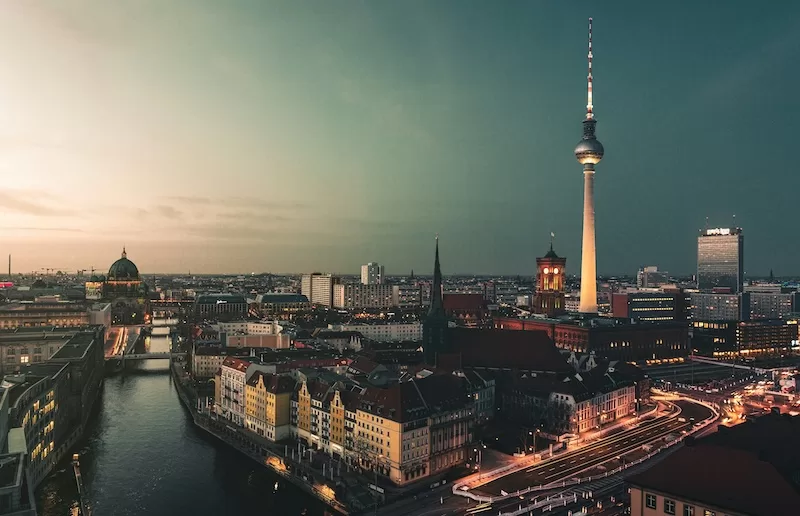
Why they appeal:
• Public transportation is efficient, making a car-free life realistic and stress-free
• Strong systems for education, childcare, and healthcare support long-term expat families
• English is commonly used in urban areas, especially among younger professionals and service sectors
• Berlin attracts artists, remote workers, and start-up talent; Munich appeals to those drawn to well-funded industries and outdoor living
• Central European location means weekend trips to new countries are as easy as booking a train ticket
Best for:
Professionals and students wanting European career development, expats who like a balance between order and cultural richness, and travelers who want dozens of countries within reach
Challenges to consider:
• Housing competition is intense in both cities, even with solid budgets
• Processing permits and paperwork can be slow and highly administrative
• Real integration benefits from learning German, particularly outside major expat zones
Germany rewards those who want a life that feels steady, secure, and surrounded by history and creativity.
Local Tip: if language feels intimidating at first, Berlin’s Prenzlauer Berg, Neukölln and Charlottenburg are known for English-friendly services. In Munich, Schwabing and Maxvorstadt offer similar accessibility with parks and culture built in.
Quick Comparison: Best Cities for American Expats
| Factor | Valencia, Spain | Lisbon, Portugal | Singapore | Panama City, Panama | Berlin / Munich, Germany |
| Overall vibe | Relaxed Mediterranean comfort, slower-paced but lively | Creative coastal capital with big-city energy and old-world charm | Highly efficient, modern, safe and global | Tropical city with strong U.S. familiarity and modern conveniences | Structured, stable, culturally rich urban life |
| Cost of living | Low to moderate for Europe | Moderate and rising | High, especially housing and childcare | Lower than most U.S. cities | Moderate to high, varies by city |
| English-friendliness | Common in expat areas | Very common in daily life | Official working language | Varies; improves in business/tourism zones | Common among younger urban populations |
| Healthcare access | Excellent and affordable | Excellent and accessible | World-class but costly without insurance | Very good and more affordable than U.S. | Universal-style system, very strong quality |
| Safety | High sense of safety | High overall safety | Among the safest cities globally | Generally safe; research neighbourhoods | Very safe urban environments |
| Weather | Warm Mediterranean climate | Mild winters, warm summers, coastal breezes | Hot, humid, tropical year-round | Tropical heat and humidity | Four seasons; Munich colder than Berlin |
| Time zone fit for U.S. remote work | Ideal for East Coast overlap | Very good for U.S. time zones | Hardest for overlap, late-night calls likely | Excellent alignment with U.S. working hours | Very strong for U.S. East Coast or Midwest |
| Community for Americans | Growing, well-integrated | Strong and well-established | Diverse and international | Large U.S. expat presence | Significant expat networks |
| Public transportation | Extensively walkable and bike-friendly | Strong transit options | Outstanding, fast and spotless | Varies; decent in core districts | Excellent in both cities |
| Best for | Remote workers, retirees, lifestyle seekers | Families, entrepreneurs, culture lovers | High-skilled professionals and families | Retirees, remote workers, frequent U.S. travelers | Career builders, students, globally curious expats |
| Biggest trade-off | Spanish required for deeper access | Rising housing costs | High expenses | Selecting the right neighborhood is essential | Housing competition and paperwork challenges |
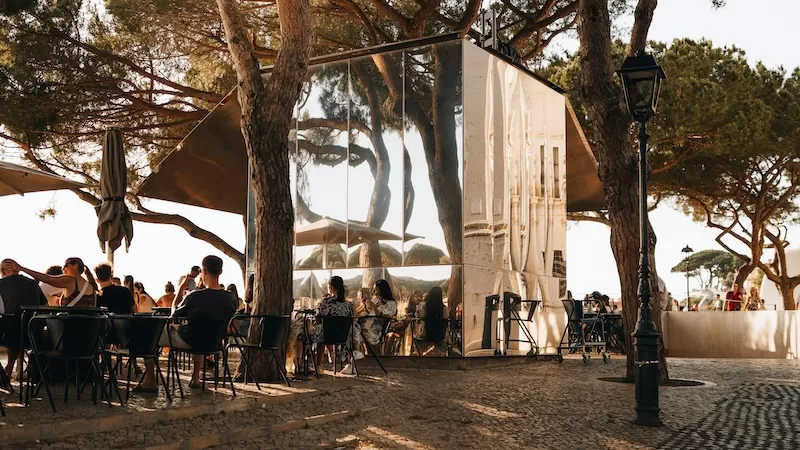
Which City Is Right for You?
A quick guide to your best expat match
Question 1:
What do you want most from your new life abroad?
A. Relaxed days, warm weather, and a city built for enjoyment
B. Culture, coastline, and a creative urban vibe
C. Global career growth with top-tier services
D. Affordability, convenience, and easy flights home
E. Stability, great transit, and access to Europe’s best cities
Question 2:
How important is cost of living?
A. I want my budget to stretch farther than in the U.S.
B. Important, but I will pay more for a city I love
C. Low priority. I want the best services money can buy
D. Very important. I want life to be comfortable and affordable
E. Middle ground. I value quality but not extravagance
Question 3:
How do you feel about learning a new language?
A. I’ll learn as I go, no stress
B. I will try, but English support helps in the beginning
C. Fine if needed, but I prefer English in daily life
D. I’ll use Spanish and English interchangeably
E. I’ll work at it, especially for long-term integration
Question 4:
What kind of weather makes you happiest?
A. Warm and sunny Mediterranean days
B. Breeze from the Atlantic, mild winters
C. Tropical warmth all year long
D. Hot, humid, with beaches nearby
E. All four seasons, including cozy winters
Question 5:
What best describes your work situation?
A. Remote and flexible
B. Remote, or open to local entrepreneurship
C. Corporate or professional career priority
D. Remote work or retirement
E. Career-building, studying, or working locally
Results
Count which letter you picked most often:
Mostly A → Valencia, Spain
You want sunshine, community, and affordable European living. Valencia gives you the Mediterranean lifestyle with everyday comfort.
Mostly B → Lisbon, Portugal
You seek a creative coastal capital with culture around every corner. Lisbon offers big-city rewards without big-city pressure.
Mostly C → Singapore
You thrive in organized environments with clear opportunities. Singapore is your launchpad for sleek, global living.
Mostly D → Panama City, Panama
You want modern life without financial stress. Panama City delivers comfort, tropical energy, and proximity to the U.S.
Mostly E → Berlin or Munich, Germany
You value stability, world-class public services, and a strong European base. Germany supports long-term plans with structure and culture.
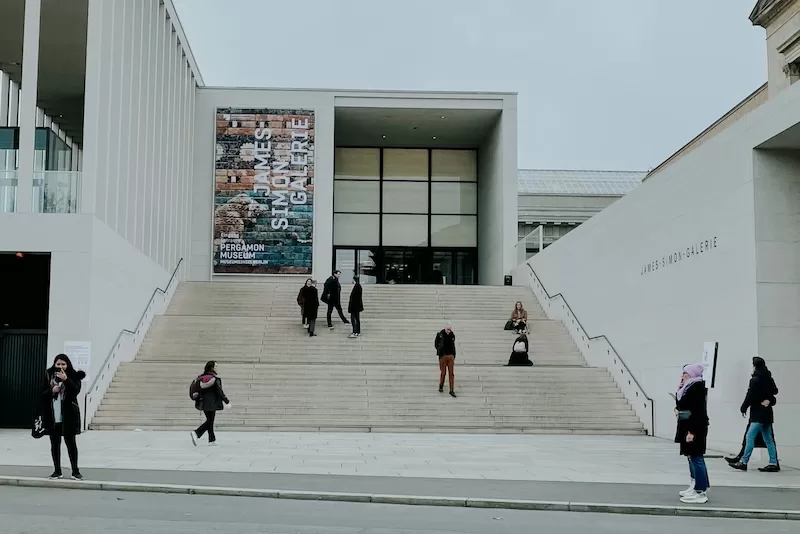
FAQs
Q1. How long does it usually take for Americans to feel at home abroad?
Most expats say the emotional adjustment happens in stages. The first few months feel like discovery, six months introduces challenges, and around the one-year mark, routines and relationships begin to feel like home.
Q2. Do I still have to file U.S. taxes if I live in another country?
Yes. American citizens must continue filing U.S. tax returns. Many avoid being taxed twice through foreign income exclusions or credit systems, but planning ahead with a professional makes a huge difference.
Q3. How do Americans access healthcare abroad?
In many countries, private insurance remains affordable and high-quality. Some systems allow expats into public care after gaining legal residency. Researching this early ensures continuity of prescriptions and specialists.
Q4. Is it safe to live abroad as a U.S. citizen?
Safety varies neighborhood by neighborhood, not just country by country. Most expats report feeling safer abroad than in many U.S. cities once they understand local norms and stay informed.
Q5. Will my U.S. bank and credit cards still work?
Often yes, but international fees can add up and some accounts may flag foreign transactions. Opening a local bank account makes everyday payments easier. Digital banking services like Wise or Revolut help during the transition.
Q6. How do I maintain my U.S. credit score when living abroad?
Keeping at least one U.S. credit card active for recurring payments preserves your credit history. Notify your bank of the move to prevent card freezes.
Q7. How can I meet people and build community in a new city?
Language classes, coworking spaces, volunteering, fitness groups and local events fast-track social connection. The more you explore beyond the expat bubble, the stronger your roots grow.
Q8. What should I do before committing to a long-term relocation?
Start by renting. Explore different neighborhoods. Talk to other American expats. And try living the everyday version of your new life (grocery shopping, doctor visits and public transit included) before you commit.
Finding the Backdrop for Your Dream Life
Finding the best city for American expats is about choosing the setting where you wake up excited for ordinary days. Details matter: the café on your corner, the ease of seeing a doctor, how safe you feel walking home, the simple joy of weekends that don’t vanish into errands.
Valencia may offer Mediterranean calm and bike rides to the sea. Lisbon brings sunlight, creativity, and coastline views within a city designed for living. Singapore upgrades convenience to art form. Panama City delivers affordability with big-city comfort and flights home that feel easy. Berlin or Munich provides order, opportunity, and the energy of Europe at your doorstep.
The right city is the one where curiosity outweighs fear. Where your budget supports your ambitions. Where life, in all its normality, actually feels good.
Now it’s your move. Subscribe to our newsletter for regular updates on ideal cities, underrated gems, insider tips for moving abroad, and take the first step toward your next chapter abroad. Your best city might be waiting.
About the Author
Escape Artist’s Editorial Assistant Carla Rodrigues is a writer, editor, and creative strategist with a passion for helping ideas travel as far as people do. After building a career that spans storytelling, marketing, and international development, she joined Escape Artist to craft narratives that inform and inspire anyone ready to live beyond borders. Based in Portugal, Carla brings both creativity, precision and lived experience to her work, turning complex topics about relocation, investment, and global living into stories that feel personal, practical, and full of possibility.
Contact Author
"*" indicates required fields
Stay Ahead on Every Adventure!
Stay updated with the World News on Escape Artist. Get all the travel news, international destinations, expat living, moving abroad, Lifestyle Tips, and digital nomad opportunities. Your next journey starts here—don’t miss a moment! Subscribe Now!
